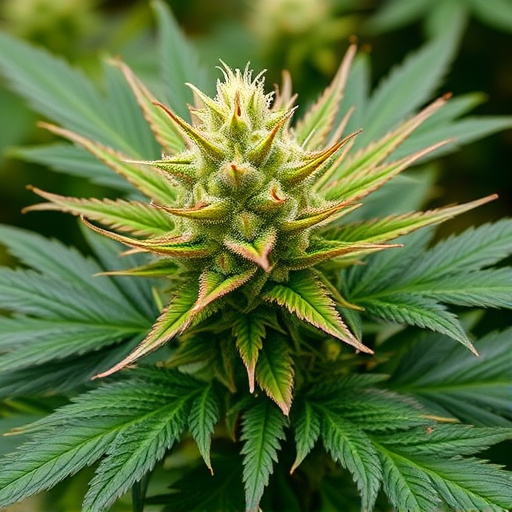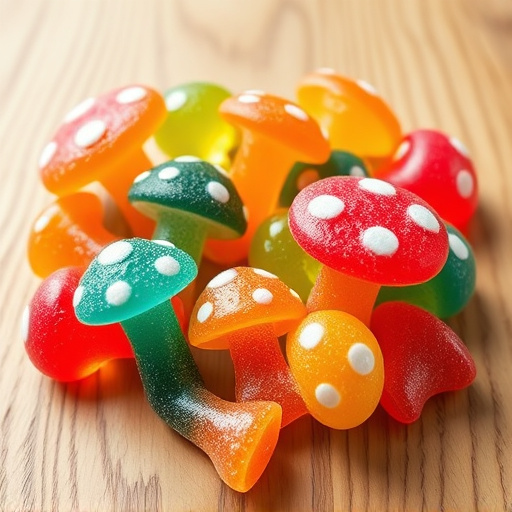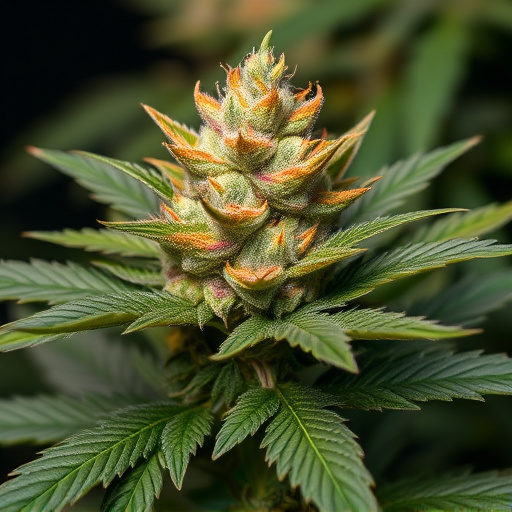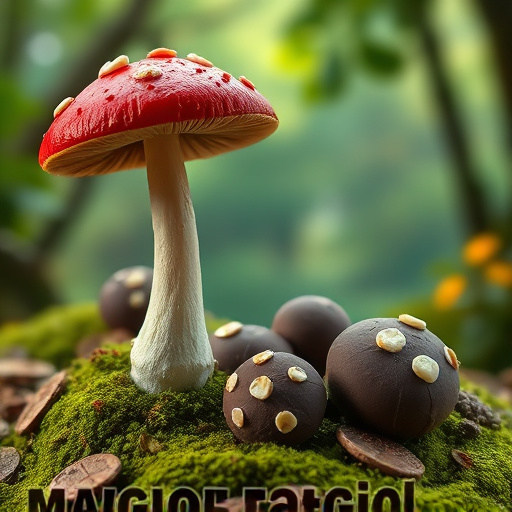Magic mushroom chocolates, containing psilocybin, offer therapeutic potential for mental health conditions through their ability to enhance cognitive flexibility. Psilocybin interacts with brain serotonin receptors, promoting neural plasticity and altering thought patterns. This leads to improved mood, creativity, problem-solving skills, and breaking negative thinking habits, making magic mushroom chocolates a promising tool in treating depression, anxiety, and addiction by fostering adaptability and openness.
“Unleash the potential of your mind with the latest trend in mindful indulgence—High-Potency Magic Mushroom Chocolates. This innovative fusion combines the ancient wisdom of psychedelic mushrooms with modern confectionery arts. In this article, we explore the science behind magic mushrooms and their profound effects on brain function, from enhancing cognitive flexibility to boosting creativity. We’ll guide you through crafting these delectable treats, offering insights into cultivation, infusion techniques, and quality control. Discover how integrating magic mushroom chocolates into your routine could revolutionize your mental health journey.”
- The Science Behind Magic Mushrooms and Their Effects on the Brain
- – Exploring the chemical composition of magic mushrooms (psilocybin)
- – How psilocybin interacts with the brain and its potential benefits for cognitive flexibility
The Science Behind Magic Mushrooms and Their Effects on the Brain

Magic mushrooms, scientifically known as Psilocybin mushrooms, have been a subject of interest for both recreational users and scientists due to their unique psychological effects. The active compounds in these mushrooms, primarily psilocybin and psilocin, stimulate the brain’s serotonin receptors. Serotonin plays a crucial role in regulating mood, perception, and cognitive functions. When these compounds bind to serotonin receptors, they can alter consciousness, induce altered states of perception, and enhance creativity.
Recent studies have explored the potential therapeutic benefits of magic mushroom chocolates as a tool for treating various mental health conditions, including depression and anxiety. One intriguing aspect of research is its focus on cognitive flexibility—the brain’s ability to adapt and switch between different thought patterns or behaviors. Psilocybin has been shown to increase cognitive flexibility by promoting neural plasticity, enabling individuals to process thoughts and emotions from novel perspectives. This effect could be particularly beneficial for those struggling with rigid thinking patterns or conditions that limit their mental adaptability.
– Exploring the chemical composition of magic mushrooms (psilocybin)
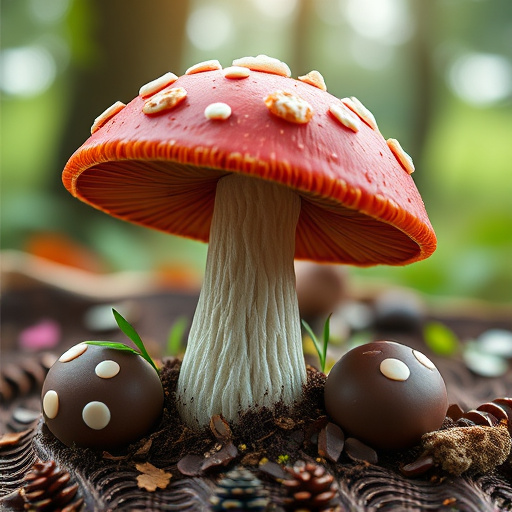
Magic mushrooms, scientifically known as Psilocybe cubensis, have long been revered for their mind-altering properties, primarily attributed to the presence of psilocybin and psilocin. These compounds are responsible for the psychedelic experiences associated with consuming magic mushrooms, but they also offer a complex interplay of effects on human cognition.
Psilocybin, the primary psychoactive compound, is a prodrug that, once metabolized by the body, converts into psilocin. Psilocin binds to serotonin receptors in the brain, leading to altered perceptions and enhanced cognitive flexibility. Research suggests that magic mushroom chocolates, which deliver controlled doses of psilocybin, can facilitate a range of psychological benefits, including improved mood, increased creativity, and enhanced problem-solving skills. This unique chemical composition makes magic mushroom chocolates not just a delicious treat but also a potential tool for exploring the mind’s capabilities and promoting mental well-being.
– How psilocybin interacts with the brain and its potential benefits for cognitive flexibility
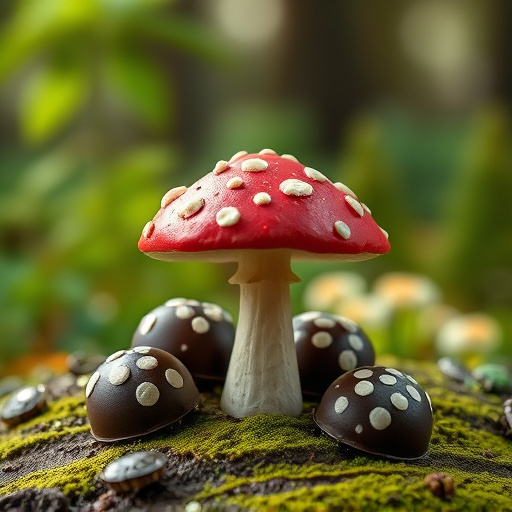
Psilocybin, the active compound found in magic mushroom chocolates, is a powerful tool for enhancing cognitive flexibility—the brain’s ability to adapt and switch between thoughts, tasks, or perspectives. When consumed, psilocybin interacts with serotonin receptors in the brain, particularly those involved in mood regulation, perception, and higher-order cognitive functions. This interaction leads to altered states of consciousness and heightened sensory awareness, allowing individuals to process information differently.
One of the key benefits of this interaction is the potential for increased cognitive flexibility. Research suggests that psilocybin can promote creative thinking, broaden mental sets, and facilitate novel insights. In essence, it encourages the brain to make unexpected connections, fostering a more open and adaptable mindset. This heightened cognitive flexibility may have therapeutic applications, aiding in the treatment of conditions like depression, anxiety, and even addiction by helping individuals break free from negative thought patterns and embrace new perspectives.
The science behind magic mushrooms and their effects on the brain highlight psilocybin as a compound with remarkable properties. By understanding the chemical composition and interaction of psilocybin with neural pathways, we can appreciate its potential to enhance cognitive flexibility. Magic mushroom chocolates, as an innovative delivery method, offer a novel way to explore these benefits while ensuring controlled dosages. As research continues, these treats could become a game-changer in mental health and wellness, providing users with a unique and potentially transformative experience.


